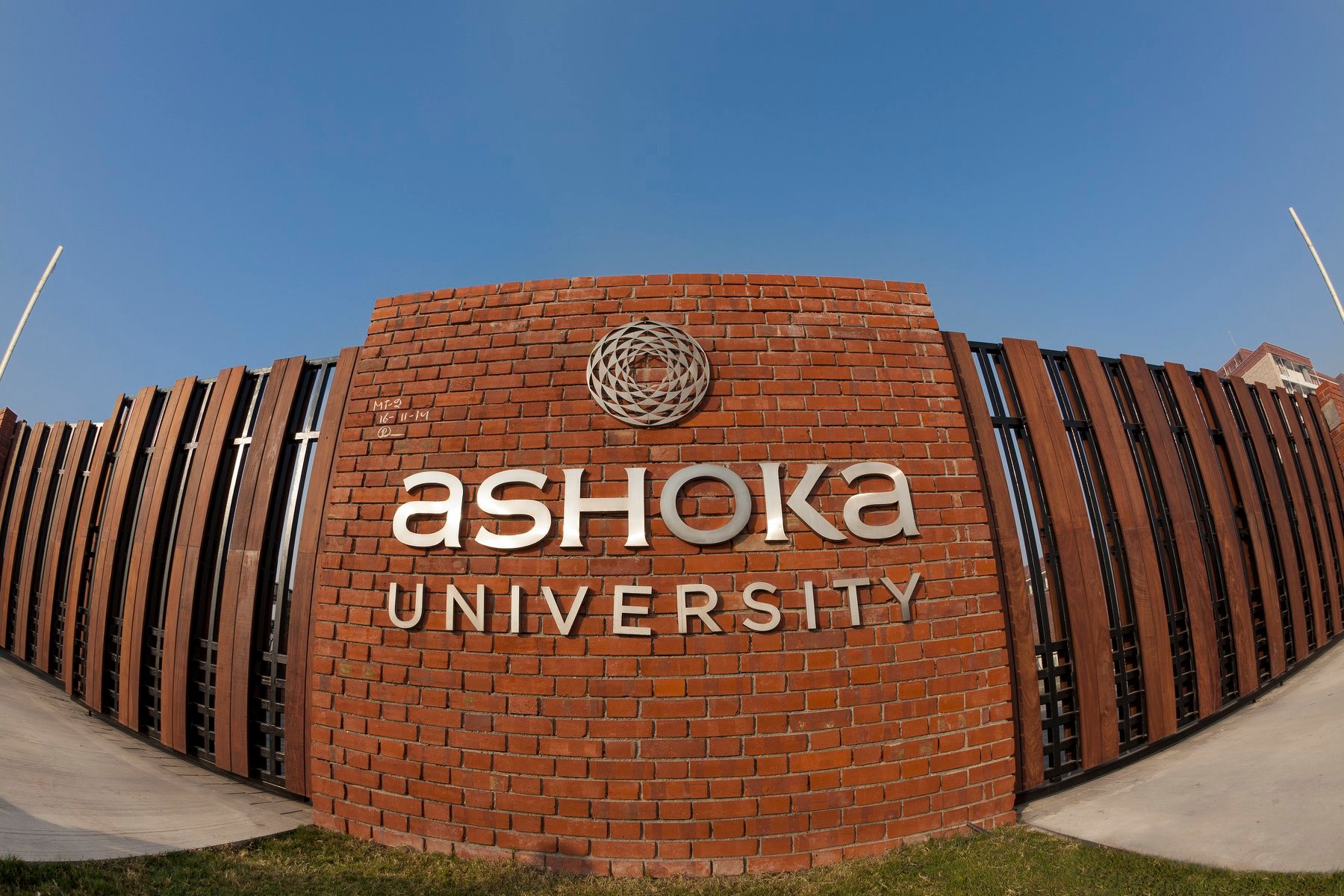
Ashoka University’s two co-founder brothers have stepped down from boards and committees of varsities following the framing of charges against them by the CBI in a case involving alleged swindling of Rs 1,626 crore. A report by Shveta Mishra
Enquiries reveal that Ashoka University co-founders Vineet Gupta and Pranav Gupta have stepped down from the boards and committees of the university, after they were named in a case involving alleged swindling of Rs 1,626 crore by the Central Bureau of Investigation. The Gupta brothers face charges involving criminal conspiracy and forgery.
However, the Ashoka University has denied any link to the case, which involves the Chandigarh-based pharmaceutical company Parabolic Drugs promoted by the Guptas. The agency has accused the brothers of cheating the Central Bank of India and 11 other banks.
The Reimagining Higher Education Foundation (RHEF), whose founders are linked to Ashoka University, had also received a licence under the Foreign Contribution (Regulation) Act from the Union Home Ministry. The RHEF is setting up a technology university at Mohali in Punjab with an initial investment of about Rs 2,000 crore. As per RHEF’s FCRA quarterly statement of September 2020, available on its website, the foundation has received foreign donations from US-based Om Prakash Foundation. The philanthropic organization has since 2019 been contributing to RHEF, which has been operational since 2017.
RHEF has five directors, Vineet Gupta, Ashish Gupta, Mohit Thukral, Ambarish Raghuvanshi and Neeraj Aggarwal. Except for Aggarwal, the RHEF directors are listed in leadership roles at Sonepat, Haryana-based Ashoka University, which has been in news over the resignation of political commentator Pratap Bhanu Mehta and economist Arvind Subramanian as its faculty members.
The website of the Ashoka University maintains that Ashoka University is a private, non-profit university, and an unprecedented example of collective public philanthropy in India. Ashoka offers its students a multi-disciplinary liberal education, usually defined as one that transcends the boundaries between the arts and sciences, and carries a strong emphasis on learning across subjects. Such an education provides depth and breadth of learning, both by exposing students to diverse disciplines and by emphasizing scholarship and research. The University’s focus is on attracting the brightest students, putting them under the guidance of the most inspirational faculty, and developing a global reputation for innovative research. Faculty and students come from across the country, and the world, and Ashoka is committed to maintaining the highest intellectual and academic standards.
Ashoka University offers undergraduate and postgraduate programmes across the humanities, social sciences and fundamental natural sciences. The aim is to help students become well-rounded individuals who are able to think critically about issues from multiple perspectives, communicate effectively and go on to become ethical self-aware leaders with a commitment to public service. It claims that the University is helped in its endeavours by some of the top-rated institutions in the world. These partnerships extend to the development of faculty exchanges, summer abroad programmes for students and research projects. Its academic partners include University of Pennsylvania’s School of Engineering and Applied Sciences; University of California, Berkeley; University of Michigan; Sciences Po, Paris; Carleton College; King’s College, London, Trinity College, Dublin and Yale University.
Ashoka’s unique post-graduate Young India Fellowship (YIF), now in its fifth year, has rapidly become one of the most sought-after programmes in India. YIF alumni are making their mark in some of the top organizations across the public, private and social sectors. They can be found at leading firms such as BCG, The Gates Foundation, McKinsey and Co., Microsoft, TIME Magazine, and the World Bank. In India, acclaimed organizations like Genpact, Avendus Capital, Cipla, Goonj, STAR TV and Teach for India count Ashoka alumni among their ranks. Many have gone on to premier global research universities like Cambridge, Harvard, Oxford, Princeton, Stanford and Yale and been awarded well-known international scholarships such as the Chevening, Commonwealth, Fulbright and Rhodes scholarships.
The Ashoka University whose campus is located in 25 acres in Rajiv Gandhi Education City in NCR at Sonepat, said in a statement, “In keeping with the high standards for governance at Ashoka, Vineet and Pranav Gupta have already voluntarily stepped down from all boards and committees of the university pending the CBI case and are cooperating fully with the investigation”. The statement said, “The university has over 200 founders and donors who have made personal philanthropic contributions to Ashoka. Their individual business dealings and operations have no connection to the university and any attempt to create a link with the Parabolic case is “frivolous and misleading”.
Parabolic Drugs — which manufactures drugs and drugs intermediaries — was set up in 1996.
In its First Information Report, the agency said the company has defaulted on repayment of loans since 2012. There are also allegations that the company used forged documents to get the loans. After raids in multiple locations linked to the Guptas across 11 cities last month, the CBI claimed it found incriminating documents, articles and Rs 1.58 crore in cash. In this case, Vineet and Pranab Gupta – whose name featured as trustees and co-founders of the university – have been charged of fraud worth Rs 1,626.74 crore involving their Chandigarh-based pharmaceutical company Parabolic Drugs. Days after the CBI accused two founders of Ashoka University, the two have stepped down from all boards and committees of the educational institution.
Raids at 12 locations
The central investigating agency, in a statement, said that the accused cheated the consortium of banks “by criminal conspiracy, forgery, using forged documents knowing the same to be forged and availed the loan funds and thereafter diverted the same”.
CBI sources told that the agency was conducting a detailed enquiry into allegations that in the name of this pharmaceutical company, the Gupta brothers used forged documents to secure loans from various public banks including the State Bank of India, UCO Bank, State Bank of Patiala, ICICI Bank, IDBI Bank, State Bank of Hyderabad, Central Bank of India, Union Bank of India, Bank of Baroda, Exim Bank, Canara Bank and SIDBI. Searches were conducted at 12 locations including Chandigarh, Panchkula, Ludhiana, Faridabad & Delhi at the office/residential premises of the accused which resulted in recovery of incriminating documents, articles and cash amount of about Rs 1,58,96,000.
According to reports, the Gupta brothers illegally availed a whopping Rs 1,626.74 crore loan from the Central Bank of India and then siphoned off the money. Vineet Gupta is the founder and trustee of Ashoka University while Pranav Gupta is the co-founder and trustee. They are promoters of Parabolic Drugs, set up in 1996.
In December, 2021, the CBI had conducted raids at about 12 locations in Chandigarh, Panchkula, Ludhiana, Faridabad and Delhi in connection with the bank scam. Reports suggest that the company run by the Gupta brothers is under the CBI scanner for allegedly fleecing a couple of PSU banks. The company used forged documents to secure loans from banks like SBI, Union Bank of India, Canara Bank, SDBI. In the case lodged by CBI, the Gupta brothers are said to have employed many means to loot the banks. They resorted to criminal conspiracy, forgery and used forged documents to solicit loans and thereafter diverted the same.













